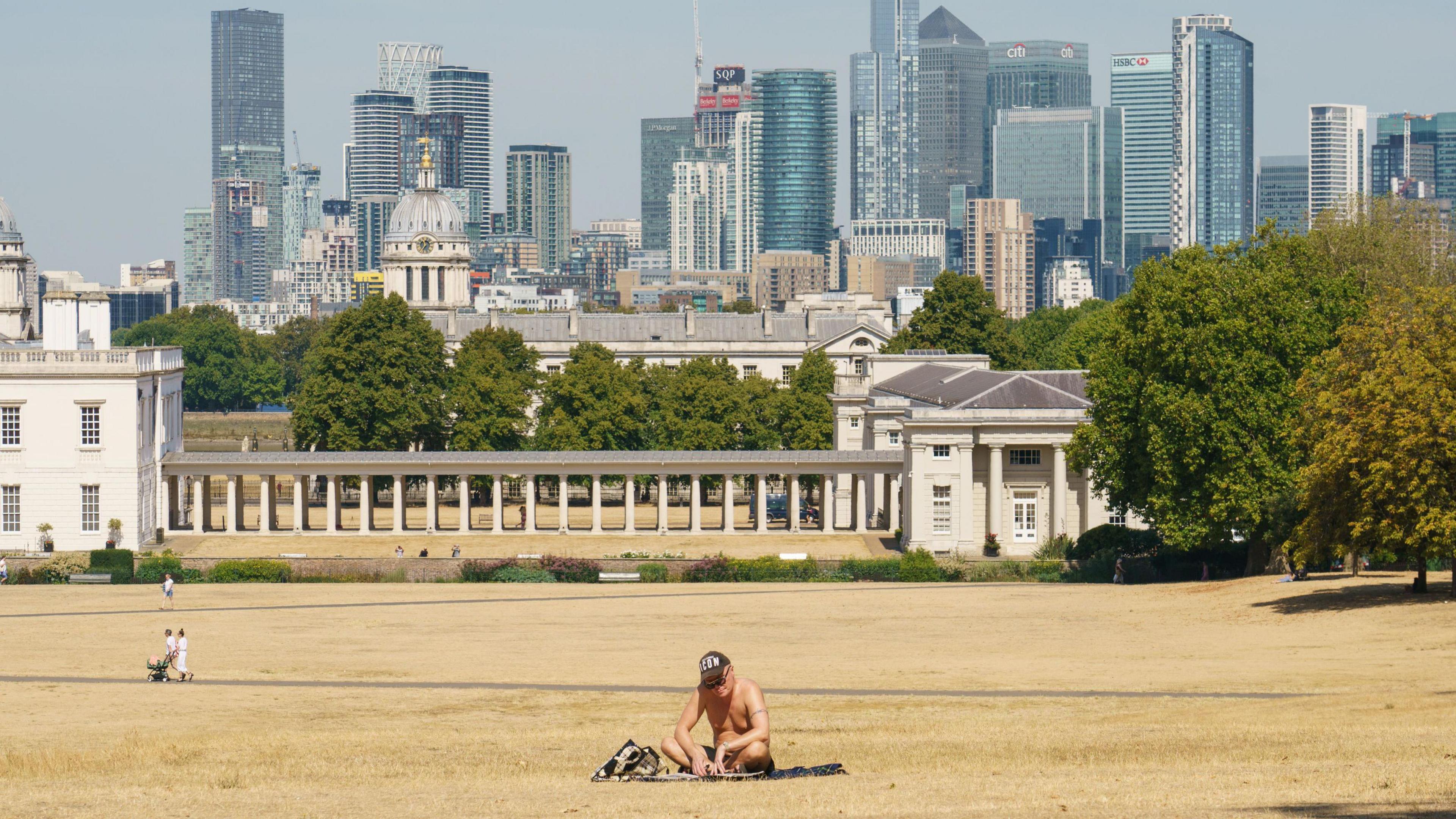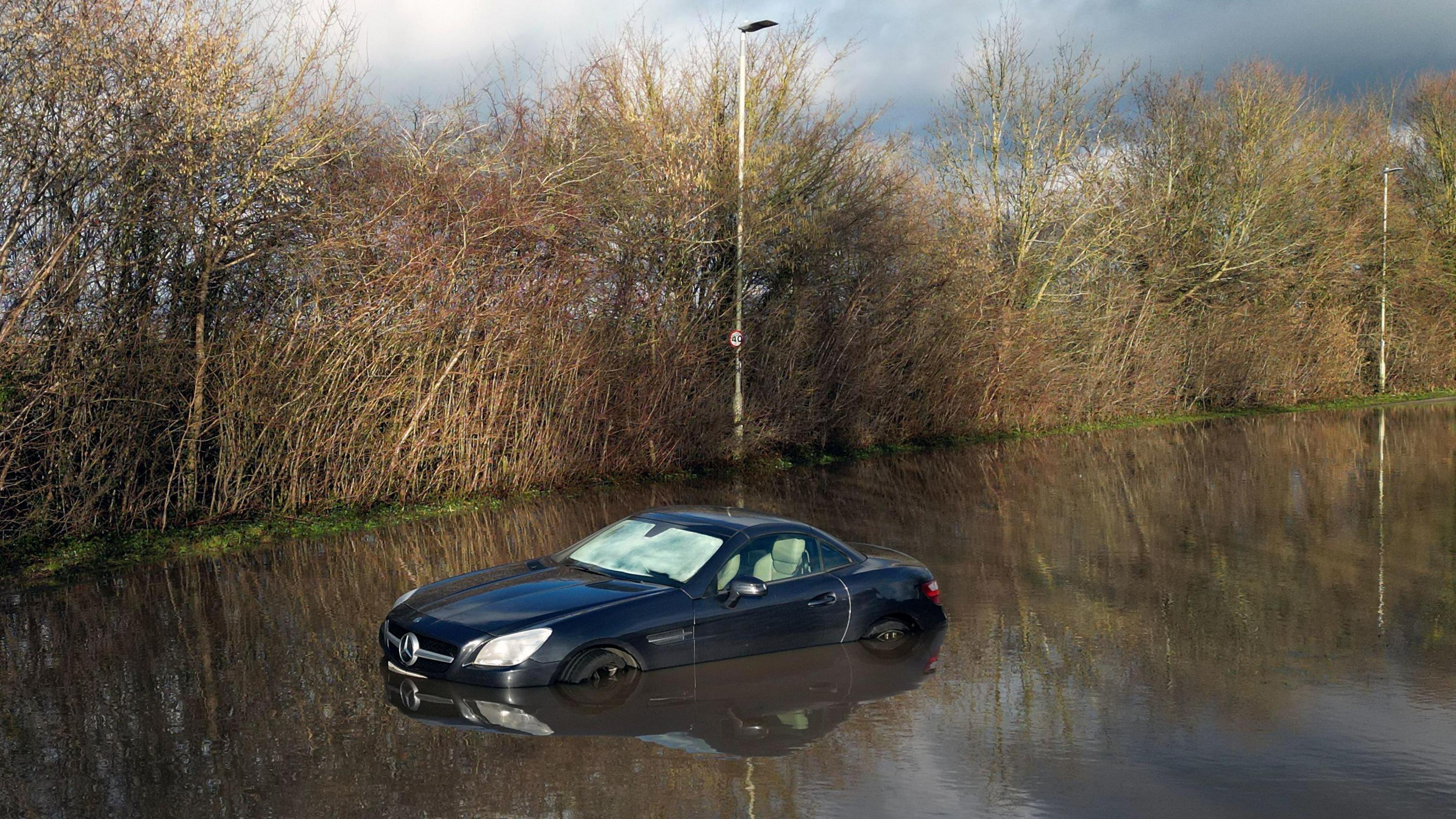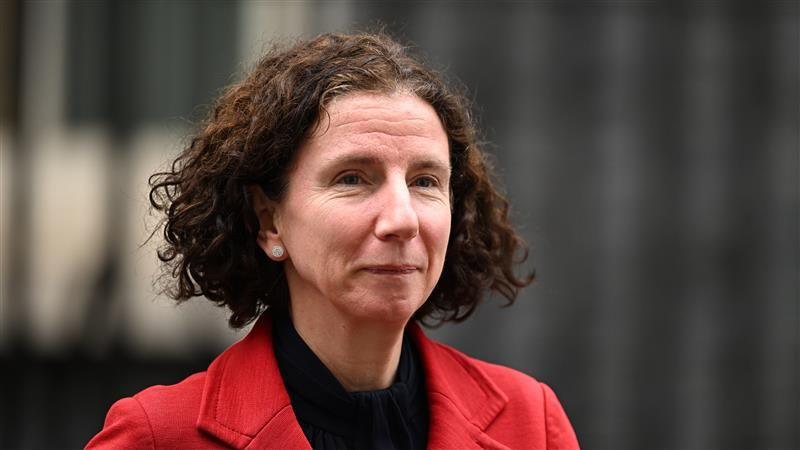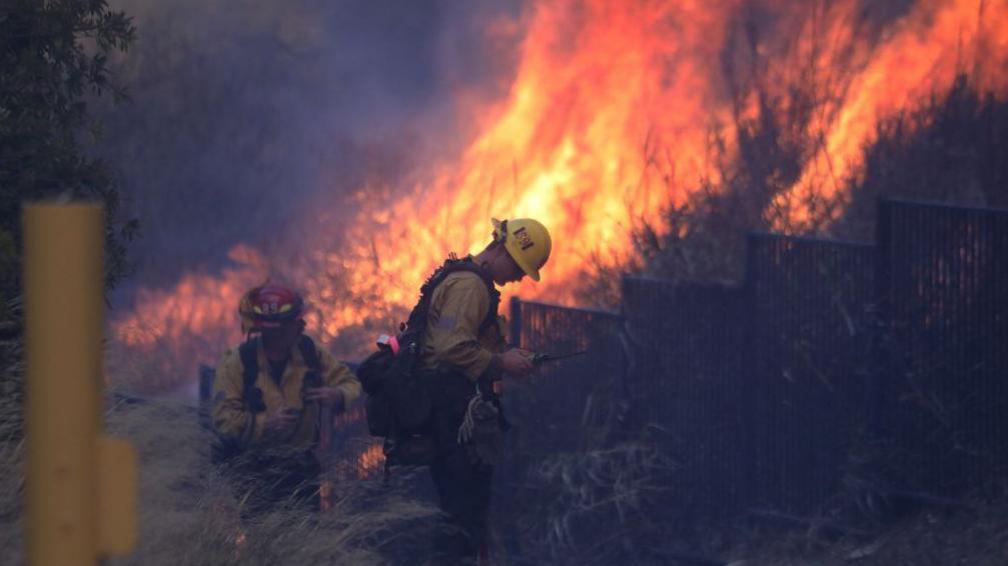Flood and drought risk increasing in cities - study

Cities such as London, Madrid and Paris are facing a more extreme dry climate, according to a study
- Published
The world's 100 most populated cities are becoming increasingly exposed to flooding and drought, according to new research.
Charity WaterAid worked with the University of Bristol and Cardiff University on a study using data on climate hazards.
The research found that 17% of the cities studied were at risk from "climate whiplash" where drought and flooding has become more intense.
Prof Katerina Michaelides, lead scientist from the University of Bristol, said: "The findings from our study illustrate just how differently and dramatically climate change is expressing around the globe – there is no one-size-fits-all."

Prof Katerina Michaelides from the University of Bristol co-authored the study
The study compared each city's social and water infrastructure vulnerabilities – such as poverty and waste systems – alongside more than 40 years worth of data on climate hazards.
Researchers then aimed to identify which cities could be the most vulnerable to extreme climate changes and the least equipped to handle them.
The study also showed that 20% of the 100 cities had seen a change, at one time experiencing one extreme, now facing another.
In the last four decades, their research showed that cities including London, Madrid and Paris had become increasingly dry, while in Sri Lanka's capital Colombo, and Lahore in Pakistan, they are now having more severe floods.
Prof Michaelides said the data could help city leaders make decisions.
"A deeper understanding of localised climate hazards can support more intelligent and bespoke planning in major cities," she added.

WaterAid worked with the University of Bristol and Cardiff University on the study
Cities in Africa and Asia are most at risk of climate shifts which can impact clean water supplies, according to the study.
WaterAid said the report had come at a time when major nations had been reducing or rediverting international aid funds.
Tim Wainwright, WaterAid UK's chief executive said: "We're seeing a sweep of global aid cuts, which could leave basic human rights hanging in the balance.
"Floods and droughts are stripping away people's foundation of survival – water.
"Communities can recover from disaster, stay healthy and be ready for whatever the future holds. It all starts with clean water."
Get in touch
Tell us which stories we should cover in Bristol
Follow BBC Bristol on Facebook, external, X, external and Instagram, external. Send your story ideas to us on email or via WhatsApp on 0800 313 4630.
- Published28 February

- Published10 March

- Published9 January
